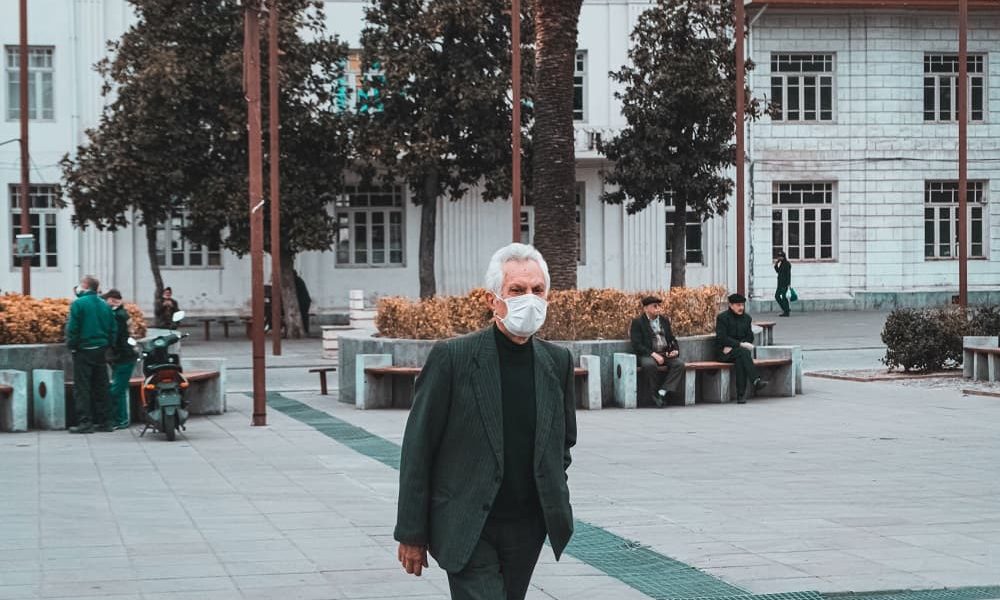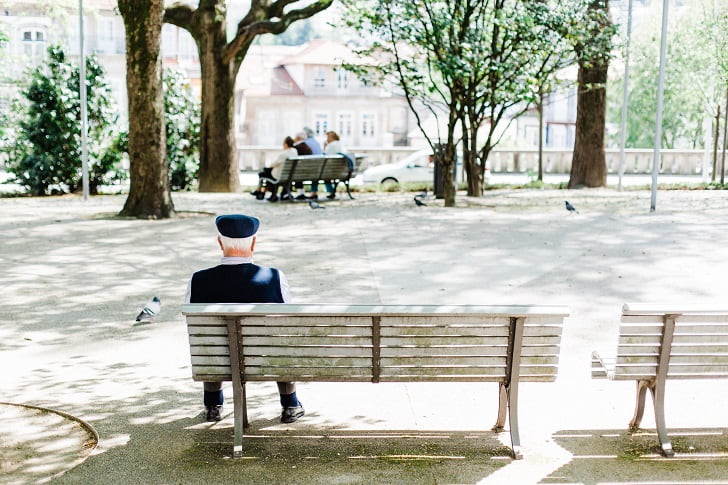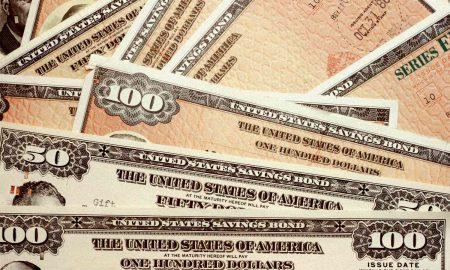
Here’s How The Coronavirus Will Greatly Change Retirement for Boomers

Financial advisers recommend that you should set aside at least 10% of your lifetime earnings for retirement, but many Baby Boomers don’t have enough saved due to unemployment, lack of financial planning, and wealth loss in the stock market crash of 2008. Baby Boomers consist of people born between 1946 and 1964, the demographic following the Silent Generation. There are approximately 73 million Boomers living in America, and they are the second-largest age group next to Millennials and constitute 22.18% of the U.S. population.
All Baby Boomers will be 65 or older in 2030 and the global economic downturn due to the spread of the Coronavirus will have prolonged economic consequences and is expected to spoil retirement plans for most Boomers.
With many of them still in the labor force and some battling the pandemic on the frontlines, they are more vulnerable when exposed, especially for those who have pre-existing medical conditions. It is not a good look for Baby Boomers who wish to stay in the labor force longer.
The coronavirus-led recession is already here but it’s severity and length are yet to be determined. However, if we take a look at historical data on previous recessions, the economy will always recover but it is sure to change how Baby Boomers look at retirements. Here are possible long-term effects of Coronavirus on Boomer’s retirement.

The economic implications of the coronavirus pandemic may affect the Baby Boomers’ retirement plans
Late Baby Boomers Will Lag Behind In Wealth Accumulation
Late Baby Boomers (ages 54-64) were set to save more, but, unfortunately, many took a hit during the credit crunch of 2008 and got laid off by employers in their 40s. During the great depression, many of them dropped out of the labor force while others settled for lower-paying jobs without 401(k)s. And now they are poised to experience a repeat of the financial decline they felt in 08 but they are no longer in their 40s. It means that they have fewer years to ride recovery and therefore need to accumulate more wealth to achieve the same level of retirement security that older boomers had.
Keeping A Job Will Be Challenging
According to an analysis by Pew Research Center in 2018, 29% of Baby Boomers ages 65 to 72 were working or seeking employment as a means to secure retirement, but the effects of the Coronavirus will likely change the statistics. Baby Boomers who have lost their job due to the coronavirus-led recession will find looking for new employment more challenging compared to their younger counterparts.
The decline in the global stock markets will lead to a weaker labor market which makes it harder to get reemployed, even for the younger job seekers. This causes Baby Boomers to be removed from the labor force and retire earlier than they have anticipated.
Not All Boomers Will Ride The Markets Recovery
The markets have experienced a scary freefall in March that activated multiple trading halts in global markets. Many investors and traders were panic selling which caused many indices to plummet to as low as The Great Depression levels.
Eventually, the markets will stabilize and recover but not all Baby Boomers are positioned for the rebound. During the 2008 market crunch, 5% of those 55 or older ditched all their stock in their 401(k)s and failed to ride the 2009 rebound, a study of 450,000 workers’ 401(k)s revealed. Selling or cashing out in a crash means converting paper loss into an actual loss. Timing your entry at the bottom of a crash is very difficult and markets turn back up swiftly.

Not all Baby Boomers may be able to bounce back when the market recovers
Many Will Use The Bucket Strategy to Generate Retirement Income
The idea behind the bucket strategy is to place your retirement portfolios in several buckets, with transfers between those buckets strategically structured. Each bucket will contain cash or other liquid assets with different allocations and different rates of returns that will provide retirement funds in several stages of your retirement. This strategy is ideal especially when the markets are not doing well; it will ensure that you have enough cash as you wait for the markets to recover.
Bucket List Trips Will Decline
Many Baby Boomers are traveling more than ever according to a survey of Baby Boomers’ 2020 Travel plans. Around 51% of them are planning to go to at least one international escapade and 23% calling their foreign travel a “bucket list trip”. In relation to that, one-third of them expressed desires to travel internationally planned to ride a cruise ship because of its convenience.
However, the precautionary measures for the global pandemic involve social distancing and community quarantining which makes staying in cruise ships and leaving for international trips impossible.
Retiring At Home Is More Attractive
The spread of the Coronavirus in nursing homes and the ban of visitors in the midst of the pandemic have made the idea of aging at home more compelling. It has reinforced the notion of the vast majority of Baby Boomers to retire in a place that reminds them of past memories, marriage, and their mortgage. Although not everyone will be capable of aging safely at home, many Baby Boomers and their adult children see the value of retiring at home because of its accessibility and the ability to maintain independence.

They would prefer retiring at home over retirement homes
Elder Care Facilities Will Change
In the last 4 years, over 550 nursing homes have shut down due to the increasing costs, pressure from payors, more competition from various forms of residential care, and the rising number of retirees who prefer to age at home. The nursing home industry will not disappear but changes are expected such as employing contagious disease experts, using antimicrobial surfaces, and other precautionary measures that can be put in place to ensure the health and safety of its residents.
More in Business & Finance
-
`
Why 50-Year-Olds Are Looking for a Career Change
In today’s fast-paced and ever-evolving job market, it’s not uncommon to see individuals in their 50s embarking on new career paths....
November 20, 2023 -
`
Why Mortgage Demand Is Crashing as Interest Rates Skyrocket
Imagine having a favorite local ice cream shop that suddenly jacked up its prices by 50%. You would probably think twice...
November 18, 2023 -
`
Santo Spirits | Sammy Hagar and Guy Fieri’s Joint Venture
In the world of entrepreneurial partnerships, some unions are destined for greatness. The unexpected alliance between Sammy Hagar, the iconic Van...
November 12, 2023 -
`
Branded Content: A Genuine Way to Connect With Your Audience
Have you ever binge-watched a series on Netflix, only to later realize that the beverage everyone’s sipping on is that brand...
November 3, 2023 -
`
Southwest Airlines Tackles Passenger and Labor Challenges
Southwest Airlines, a prominent player in the aviation industry, has found itself at a crossroads, facing a combination of passenger dissatisfaction...
October 28, 2023 -
`
Everything You Need to Know About Blended Interest Rates
Hou ever blended a smoothie and thought, “How on Earth do my strawberries, spinach, and protein powder come together to taste...
October 17, 2023 -
`
The Osbournes ‘Relaunch’ Podcast After 5 Year Break
If you were glued to your TV in the early 2000s, there is no way you missed the hilarious, raucous, and...
October 10, 2023 -
`
Tesla in China: Back-to-Back Price Drops, But No Sales Jump?
As temperatures soared in the summer of 2023, Tesla seemed to be heating things up in the Chinese market too. A...
October 6, 2023 -
`
Navigating Red Flags in the Workplace
In the journey of our careers, it’s not uncommon to encounter red flags in our jobs that signal potential issues or...
September 30, 2023















You must be logged in to post a comment Login